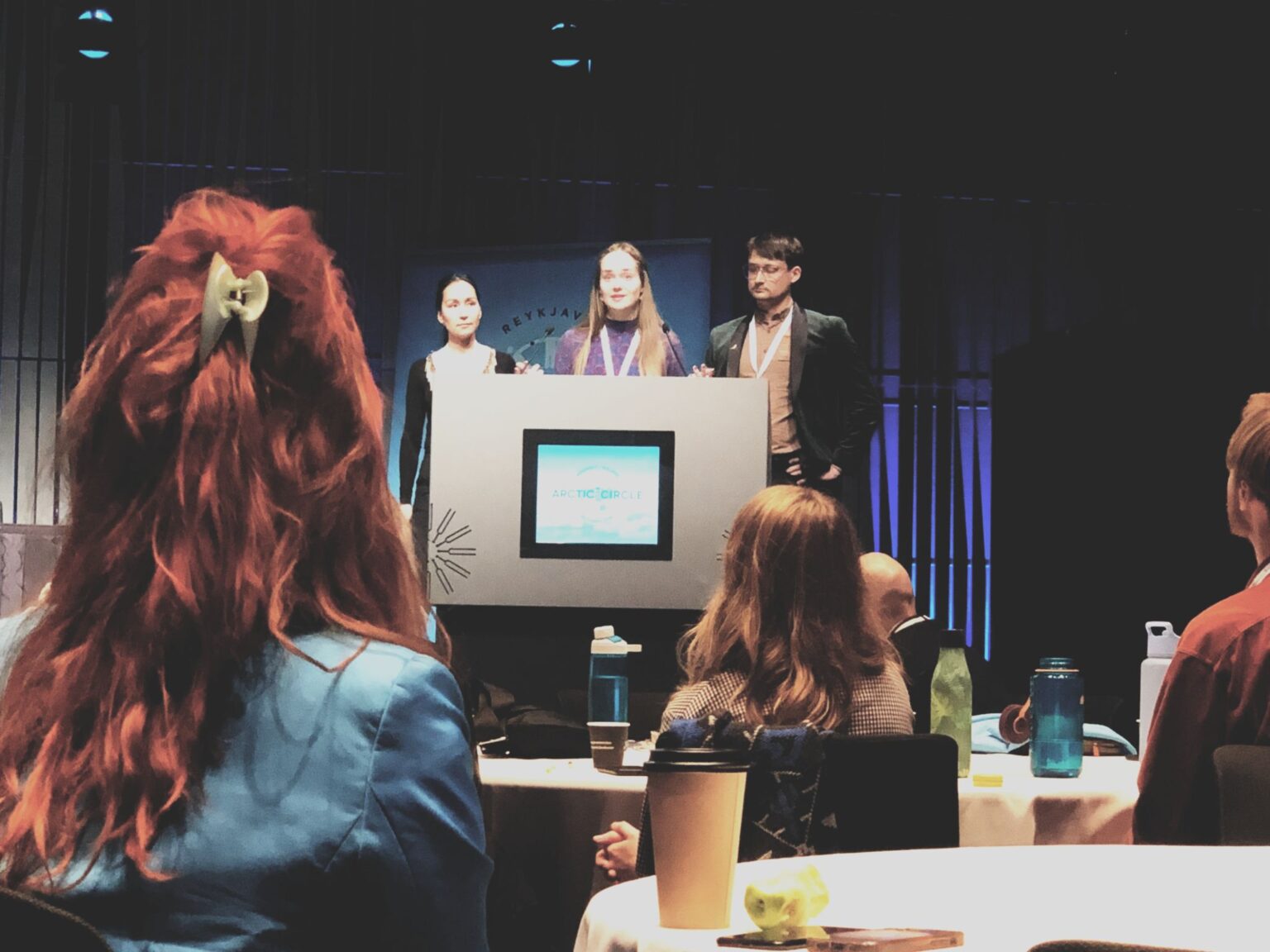From climate change to security concerns, and from youth empowerment to innovation—Arctic Frontiers brought key voices and sharp insights to the stage at this year’s Arctic Circle Assembly in Reykjavík.
Shaping the Future of Arctic Governance
At a time of significant geopolitical and environmental shifts, Arctic governance is at a crossroads.
Our Executive Director, Anu Fredrikson, took the stage alongside the Fridtjof Nansen Institute for the panel “Navigating the Future of the Arctic Council.”
The session reflected on the past three years—undeniably the most tumultuous in the Arctic Council’s history—and looked ahead to the challenges and opportunities as the Kingdom of Denmark prepares to assume the Chairship in 2025.
Key takeaways included:
- Climate change and evolving security dynamics are the two main forces shaping the Arctic.
- Cross-border cooperation will be crucial in addressing shared challenges.
- More robust mechanisms are needed to incorporate local voices into Arctic governance and diplomacy.
From Local Knowledge to Global Policy
Anu Fredrikson emphasized that the insights, experiences, and knowledge of Arctic communities must be integrated into Arctic governance structures—from the Arctic Council to broader international frameworks.
The way forward must be inclusive, equitable, and co-created with the people who reside in the region.
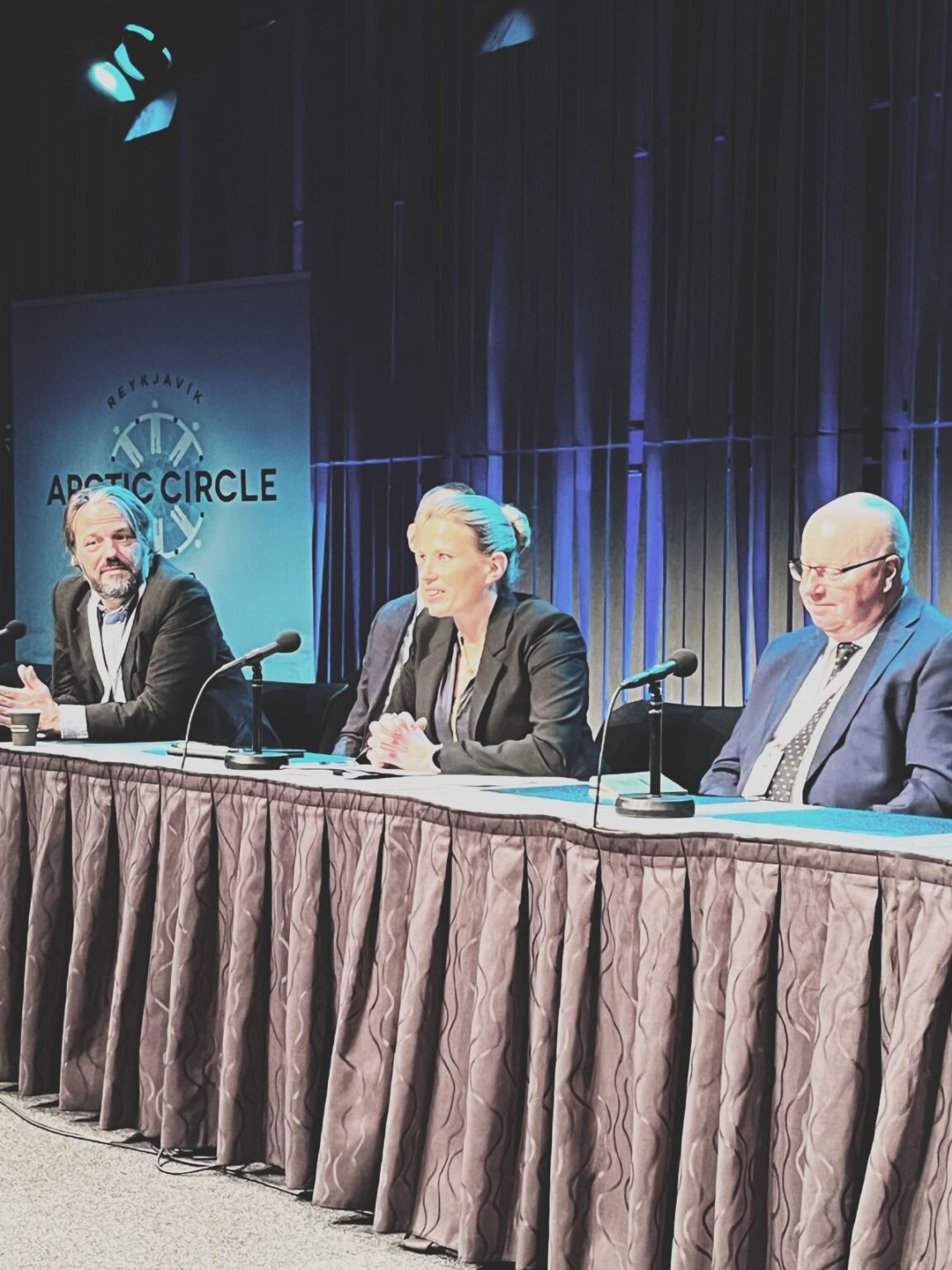
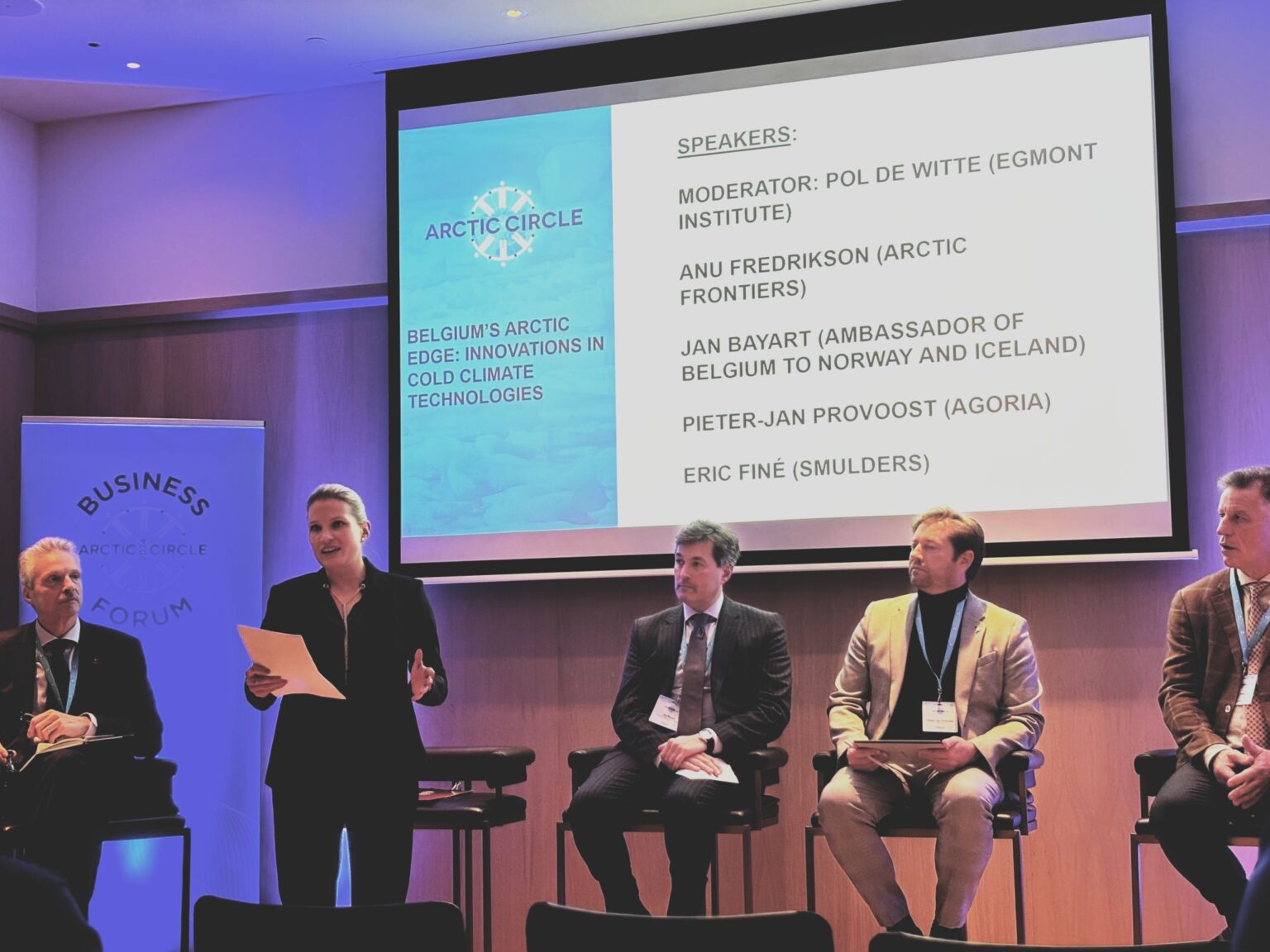
Belgium’s Arctic Edge
In the session “Belgium’s Arctic Edge: Innovations in Cold Climate Technologies,” organized by EGMONT – Royal Institute for International Relations, Anu Fredrikson joined Ambassador Jan Bayart, Pieter-Jan “PJ” Provoost, Eric Finé, and Pol De Witte to showcase Belgium’s cutting-edge R&D and industrial innovation in the Arctic.
The discussion highlighted how international partnerships and scientific collaboration are advancing solutions to some of the Arctic’s most urgent challenges.
Youth Leading the Way
The Arctic’s future depends on the next generation, and the session “Formats of Arctic Youth Cooperation: Past, Present, and Future” proved just that.
Moderated by our own Julia Morales-Aguirre, this lively discussion brought together inspiring youth leaders and policy influencers, including Maria Varteressian, Julius Mihkkal Eriksen Lindi, Patti Bruns, Sarah Marie Strand, Ronja Wedegärtner, Raphaël Goulet, and Maiyuraq Nanouk Jones.
Together, they explored how intergenerational dialogue and meaningful youth inclusion are making Arctic governance more dynamic and representative.
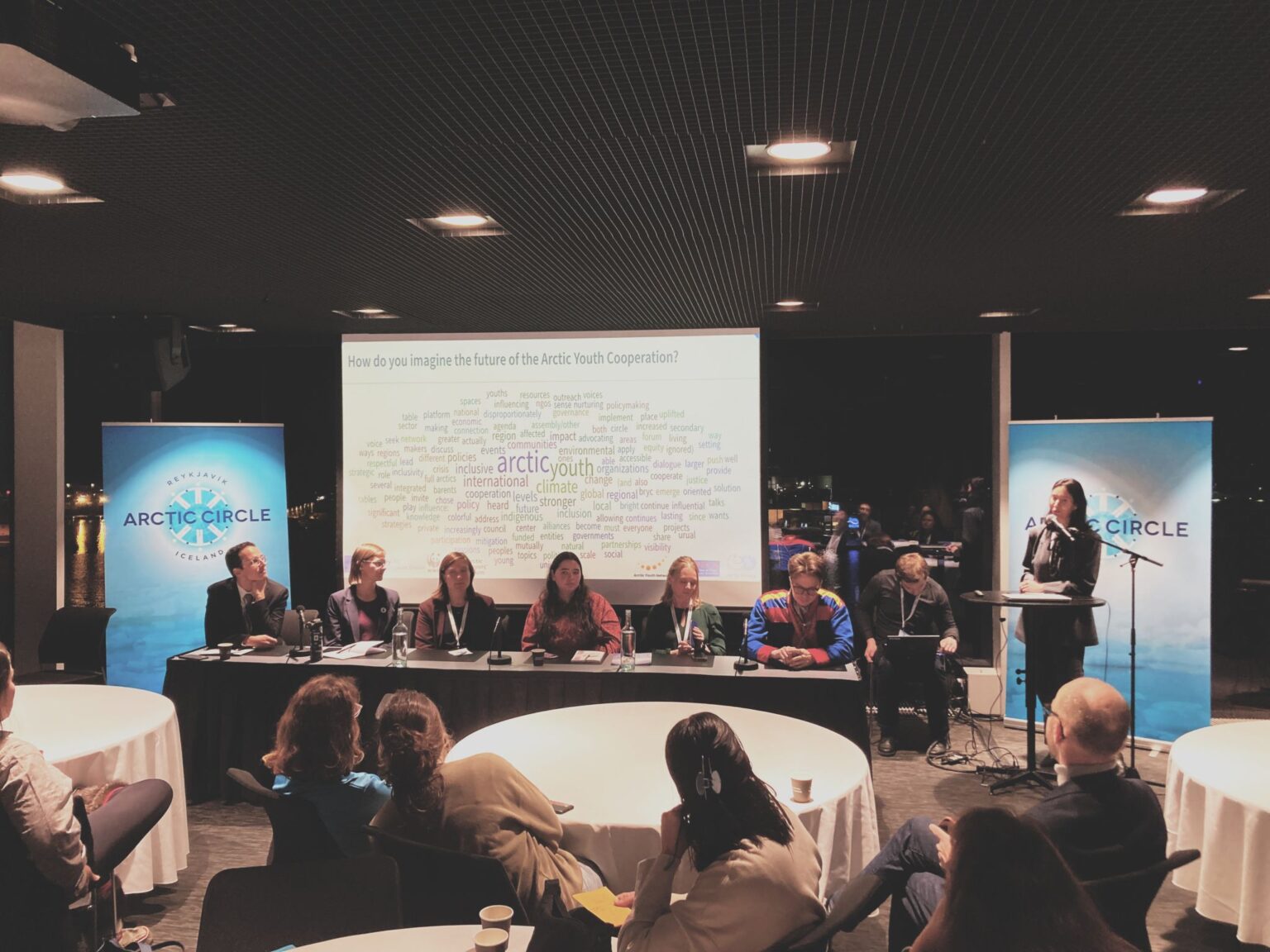
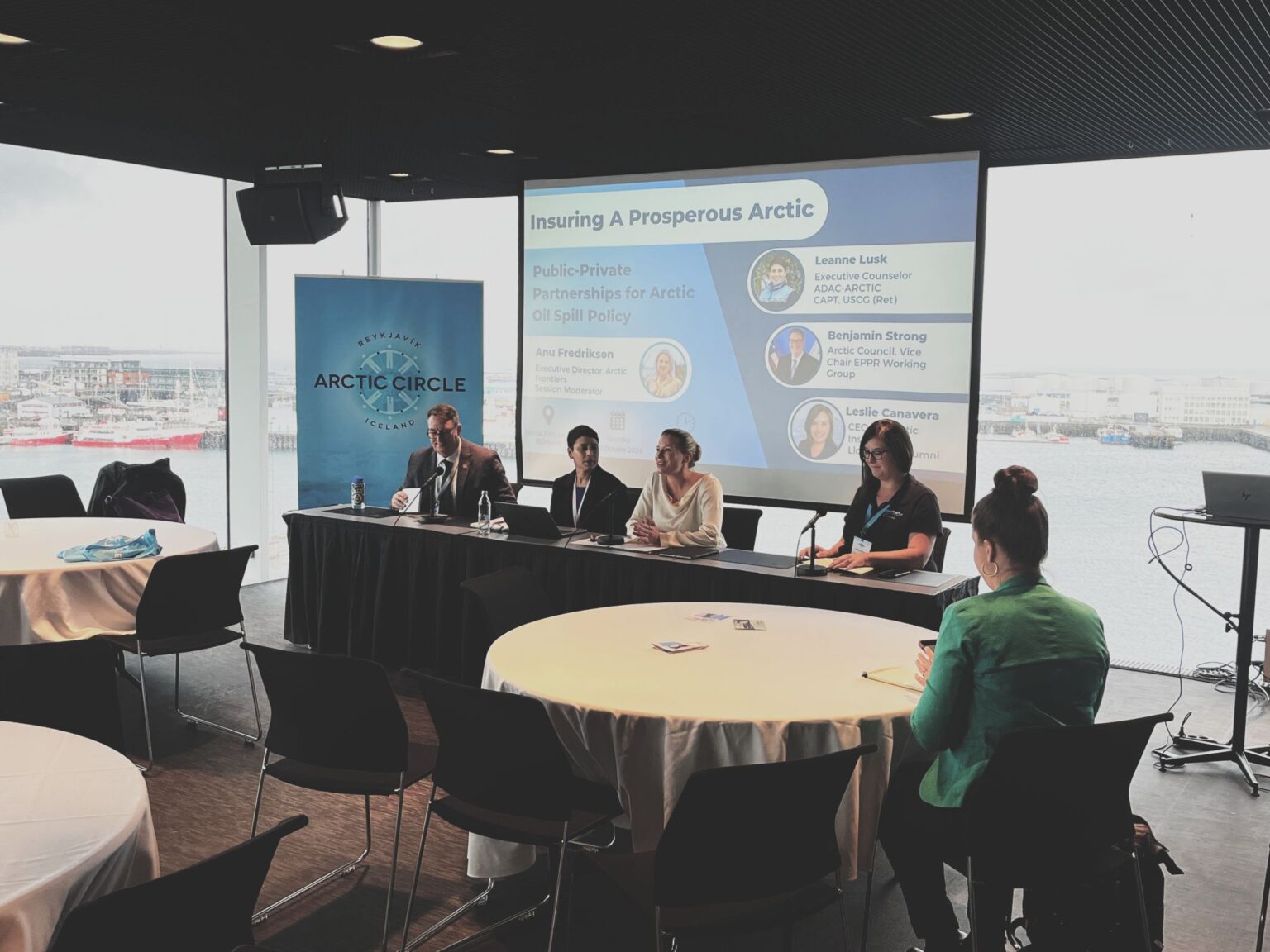
Securing the Arctic Through Collaboration
In another panel moderated by Anu Fredrikson, the focus shifted to the role of insurance in facilitating sustainable Arctic development, particularly as maritime activity escalates.
Experts Leslie Canavera, Benjamin Strong, and Leanne Lusk examined how cross-sector collaboration can aid in de-risking investments and safeguarding Arctic communities.
Student Innovation on Display
We were especially proud to see our advisor, Katrine Opheim, take the stage in the ” ARCADE: New Solutions to Social and Environmental Challenges in the Arctic ” session.
Representing the Arctic Academy for Social and Environmental Leadership, she and her fellow students showcased innovative, student-led approaches to addressing climate challenges throughout the region.
